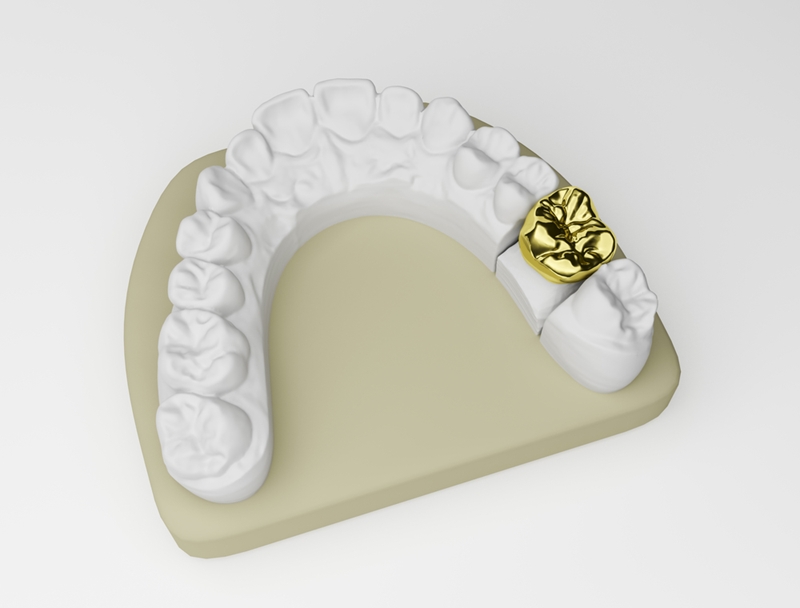 Do you experience pain when you're chewing? Perhaps you get that stabbing feeling in your mouth without any trigger at all. A dental infection hurts, and it won't go away on its own. You need to seek treatment right away, as ignoring dental infections not only prolongs that sharp ache, but it can also damage the surrounding teeth and jaw.
Do you experience pain when you're chewing? Perhaps you get that stabbing feeling in your mouth without any trigger at all. A dental infection hurts, and it won't go away on its own. You need to seek treatment right away, as ignoring dental infections not only prolongs that sharp ache, but it can also damage the surrounding teeth and jaw.
If you have a dental infection, sometimes referred to as an abscess, you have two main options for treatment: dental implants and root canal therapy.
A decision between you and your dentist
You may have the opportunity to choose your treatment option, so it's important to fully understand each method. The American Association of Endodontists noted that both procedures have the same success rate, so dental professionals are increasingly turning to factors other than outcome when selecting which procedure to conduct.
Defining dental implants: A dental implant procedure involves extracting the infected tooth and replacing it with an artificial one. According to the American Academy of Periodontology, the dental implant itself is a synthetic root used to secure a prosthetic tooth. Dentists can opt for either an in-the-bone or on-the-bone implant, though the former is more commonly used. For in-the-bone implants, the dental health professional uses surgery to embed either screws, blades or cylinders in the jaw bone.

A dentist may place a crown on your tooth following a root canal.
The scoop on root canal therapy: According to Colgate, root canal therapy treats infections in the tooth's root by clearing bacteria directly from the lateral canals, hence the name. Dentists do this by pushing an endodontic file through the crown and into the canal to remove infected pulp and shape the canal in preparation for the filling.
After a dental professional removes all the debris, he or she will then fill the empty canals with a permanent material and sometimes place a post alongside the substance to better support the tooth. The placement of a permanent cap on top of the tooth completes the process.
Learn how you can save 20%-50% off advanced dental procedures.
Other factors to consider
As with most dental health procedures, there are numerous considerations surrounding the decision to opt for a dental implant vs root canal. You also have to think about the health of your smile, your well-being, and your wallet.
Saving the natural tooth: Dentists typically prefer to save the natural tooth. As such, your dentist may elect to perform a root canal if your real teeth can remain cavity-free, but that's difficult under certain circumstances. For example, if the dentin (the inside of the tooth) is weak or the tooth is too compromised overall, artificial implants may be the better option.
Overall health: Certain medical conditions may sway the dentist's decision, too. For instance, the AAE noted that women with lower estrogen levels may be more prone to dental implant failure. Additionally, a study published in the Journal of the Academy of General Dentistry highlighted that the decreased circulation associated with diabetes may make a dental implant site more vulnerable to infection, leaving root canal therapy as the better option. However, those with conditions that inhibit saliva production, such as Sjogren's syndrome, may benefit from dental implants, as artificial teeth are not as susceptible as natural teeth to the cavity-causing consequences of reduced saliva.
Dental hygiene and habits: Adequate oral care is important for the success of either root canals or implants, though the General Dentistry study specifically noted "good oral hygiene" as a positive factor for dental implant success. Meanwhile, bruxism (teeth grinding) and smoking may hinder the outcome of dental implants.
Your smile: Your smile is one of the first things people see when they meet you, so it's understandable why so many patients prioritize aesthetics. According to animated-teeth.com, root canal treatments may influence the look of your smile if completed on the front teeth. For mouths that are already crowded, the dentist may have difficulty placing the dental crown on the tooth. However, dental implants may straighten the alignment and enhance the overall appearance of your teeth.
Cost: Root canal vs implant costs can differ significantly. Dental implants may require several appointments; meanwhile, dentists can usually complete root canal therapy in a single session. As such, the cost of dental implants is naturally more expensive than root canals, though the price difference varies depending on your dental office and geographical location. A dental discount card can help you achieve affordable care for either option you choose.
Though you have a lot to consider when choosing a treatment option, the most important thing is to schedule an appointment as soon as possible. Dental health professionals can answer any questions you have and help you feel better.

